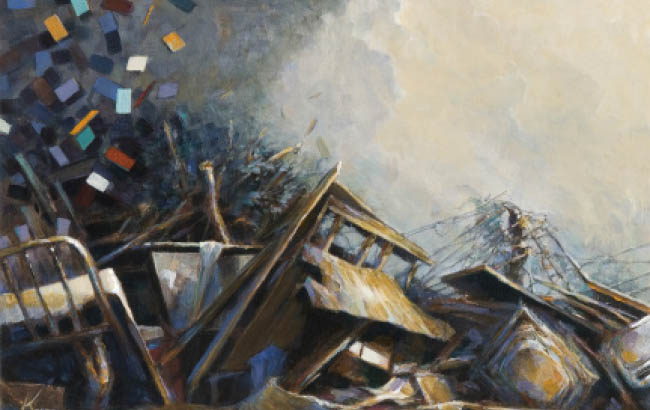Populism, an emotional issue which is in conflict with reason, is a widespread plague across the human society. It is detrimental to social order. Populism is replete with part of society’s accumulated feelings and harm or eliminate social order.
The arrival of Gulbuddin Hekmatyar in Kabul along with the cheering and booing of armed individuals has reviewed the populistic memory of 1370s (solar year) and worried Kabul residents. Although the proponents of Ahmad Shah Masoud (Jamiat-e-Islami) show their power and satiate the nostalgic feelings of his supporters, there was no opponent for them earlier and the war-weary people watched and forgot. Now with the arrival of Hekmatyar in Kabul and the revelation of its power, it is likely that the constant rival of Hezb-e-Islamic Afghanistan (HIA) will also demonstrate its power, which will align the two parties against each other and result in fragility of social order. The question is will Afghanistan return to the former state of 1370s and a battlefield for armed parties? This commentary intends to answer this question after introducing populism.
What is populism?
Populism is a belief in the sanctity of people versus elites and used by militants, demagogues and left-wingers. To state in the words of Daryosh Ashuri, an Iranian scientist, populism is demagogy. According to populistic view, some deem people’s demands right and moral and prefer them to any possible mechanism. That is to say, this view sanctifies people to the extent of changing them into taboo. This is done to motivate people and pursue political objectives. Historically, the roots of populism, alike radical mindset and leftism, refers to the 19 century Russia. In 1860s, a group emerged from Russian fundamental intellectuals called narodnics who were critical of linear progress and believed that Russia would reach socialism directly without reaching capitalism. They suggested the solution that boosting rural commune, one can gain universal commune. Therefore, students and educated individuals were sent to rural areas to pave the ground for universal revolution through inspiring farmers and workers.
Populistic view infiltrated the Latin American revolutionists after Russia. Almost all workers’ revolutions in Latin America occurred with emphasis on populism and attracted the world’s attention.
Generally, populism is a short-term nature of Commons keeping its supporters happy for few weeks and so. In other words, populism, alike anarchism and fascism, is an ideology with general characteristics which may prevail in all societies but with different roots and grounds. For instance, populism might be rooted in ethnicity in one country and in financial poverty or cultural poverty in another country.
The Roots and Characteristics of Jihadi Populism
There will be many factors for populism in Afghanistan and the most significant factors are financial poverty, cultural poverty, historical poverty, lack of feeling collective character, contrast of multiple identities and lack of national symbolic capital. However, jihadi populism has its certain factors. Jihadi populism is a kind of unique populism which emerged in 1370s as a result of mujahedeen’s opposition and civil unrest. With such a demagogy, which aims to mislead supporters’ thought, politicians and tribal officials seek to seduce public opinion and give false personality to the group under their dominance and false identity to a certain tribe – through displaying their military equipment and their armed men – so as to maintain their own survival. In 1370s, all jihadi groups, belonging to any ethnic groups or any particular political sides, had their certain personalities, uniforms, and certain terms and their communications were different from other parts of society. For instance, the nostology of Pakol (a certain type of Afghan hat) evokes the memory of Ahmad Shah Masoud, turban of Taliban and a particular American jacket of Hezb-e-Wahdat’s popular commanders who were based in Kabul’s west. These all give specific identity to a part of society based on Jihadists’ populistic view.
One of the significant parts of jihadi populism is intolerance to the current social order and modern bureaucracy. Dismantling the order formed by past puppet government during the active role of former Soviet Union, they will also break the post-Taliban order and establish their own. The arrival of HIA’s leader along with certain military equipment and armed men reveals this fact. Previously, members of HIA had high positions in the government’s body but never showed tendency to break the social order. Within few days, the feature of Kabul has been changed and maneuvering of hundreds of vehicles is the reminiscent of 1370s.
Home » Opinion » Populism – A Threat to Existing Order
Populism – A Threat to Existing Order
| Mohammad Urozgani

